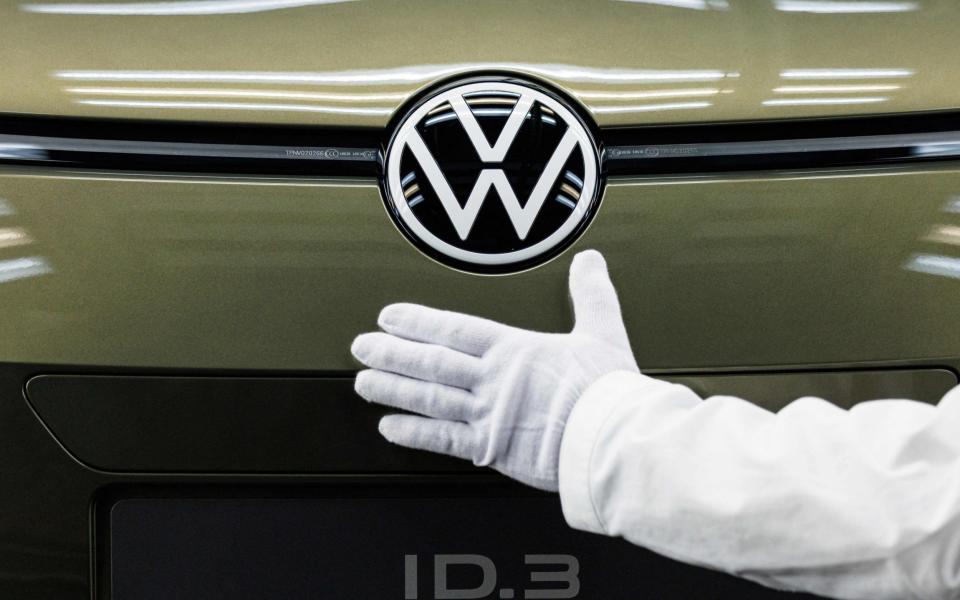Artificial Intelligence creates more realistic assistants to ‘improve’ the in-car experience

It’s a change that, depending on your viewpoint, could amuse and inform, or annoy and even infuriate.
Artificial intelligence, in the form of ChatGPT, is coming to everyday cars.
Anyone driving a Volkswagen, DS or Mercedes will soon have access to the latest “talking” technology, which uses artificial intelligence (AI) to attempt realistic conversation between the car and you - including bad jokes.
Launched in late 2022, ChatGPT (Generative Pre-trained Transformer) attempts to engage in natural written and spoken conversation with users, and its take-up has been huge. Earlier this year, The Telegraph revealed Government plans to use ChatGPT on its official website, and Google is in talks to put the technology on every iPhone. Meanwhile, a UK judge has admitted to using the service to write a court ruling.
The success of ChatGPT has ensured that vehicle manufacturers are increasingly convinced that AI is the future of in-car connectivity, upgrading the existing but often limited range of cabin voice controls that, until now, operate the most basic of functions, such as “raise the temperature” or “call home”.
The advent of ChatGPT in cars recalls KITT, the advanced robotic module in the Pontiac Firebird driven by David Hasselhoff in the Eighties TV series Knight Rider. KITT and Hasselhoff’s character Michael Knight would often talk to each other as they fought crime.
But similar talking technology will not be limited to expensive sports cars, and will soon be widely available across the board, in everyday family vehicles and regular SUVs.
Volkswagen has announced that ChatGPT - developed by California-based company OpenAI - is being installed on new models across its range in the UK as standard, such as this year’s updated Golf, and its Passat and ID electric models.
The non-subscription service will integrate with VW’s existing Ida voice assistant but, perhaps thankfully for some, will activate only when prompted with the wake-up call “Hello Ida” – or by pressing the button on the steering wheel that engages voice activation. Ida can already be used to control infotainment, navigation and air-conditioning systems, and also answer general knowledge questions.
If you’re a technophobe with a partner whose name is Ida, however, cancel that new Golf right away.

Stealing a march on VW is DS Automobiles, by becoming the first manufacturer in the world to include ChatGPT as standard, integrating with the brand’s existing Iris system.
This AI travel companion is said to answer almost anything you throw at it, providing information about nearby places to visit, and even creating stories and quizzes for children that take the tedium out of long bank holiday journeys.
DS says that in a pilot of ChatGPT launched in October last year, the use of speech recognition in its range of cars increased by 50 per cent. And Iris interacted on questions such as “What do you advise me to do in this castle if I have two hours and I’m with my 10-year-old son?”
Skoda is another manufacturer set to install ChatGPT this summer, allowing AI to help voice assistant Laura “enrich conversations and clear up questions” hands-free. Drivers say “OK, Laura” to activate the service. They can even tell Laura they love her, although the response will likely be “Keep your eyes on the road”.
VW siblings Audi and Cupra are expected to start using their own AI platforms later in the year, while Mercedes aims to fully implement the new technology in UK vehicles. The company has already trialled ChatGPT in the US, offering the service to 900,000 drivers, and will roll out the system here by the end of the year. Cars equipped with the company’s latest, advanced MBUX infotainment system should then benefit from dramatically improved voice interactions, using the existing “Hey Mercedes” virtual assistant.
A Mercedes spokesman said: “Our voice assistant has already set industry standards and is known for its intuitive operation, with a large command portfolio. Customers can receive sports and weather updates, have questions answered about their surroundings, or even control smart functions.
“ChatGPT complements that existing intuitive voice control. While most voice assistants are limited to predefined tasks and responses, ChatGPT leverages a large language model to greatly improve language understanding and expand on topics.”
Ironically, one piece of AI assistant-speak that hasn’t been generated by technology is the genuinely comic one-liner. Which might lead you to hope that when you ask “Hey Mercedes, tell me a joke”, you would receive the jovial response, written and uploaded by a Stuttgart technician with a very real sense of humour: “Sorry, my engineers are German”.
“Sadly, robots can’t do everything, yet,” added the Mercedes spokesman.


 Yahoo News
Yahoo News 
